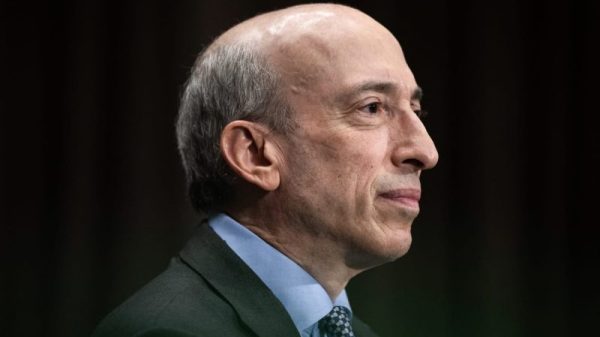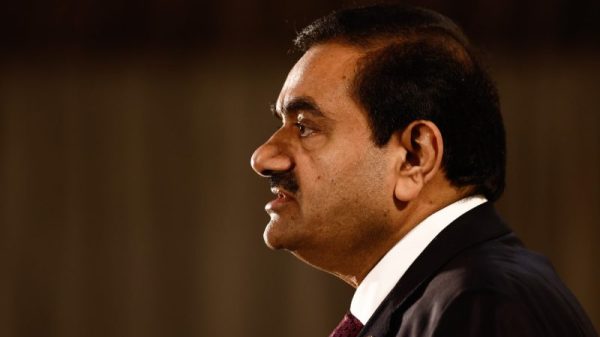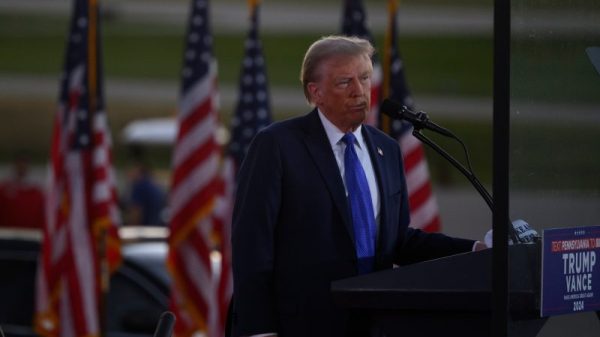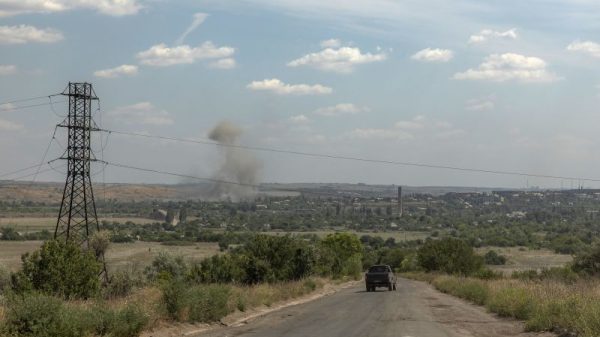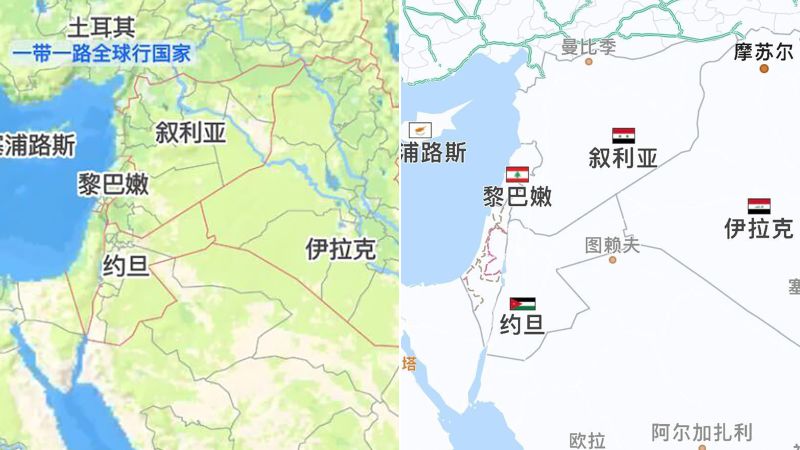Beijing has clarified that Israel remains marked on official maps issued by Chinese authorities after questions emerged over why the country’s name was not visible on online maps provided by two major Chinese companies.
The country name “Israel” does not currently appear on maps on popular mobile applications from leading search platform Baidu or the Alibaba-backed Amap, even though its territory and the names of neighboring countries are clearly shown in a view of the region. Countries of similar or smaller size to Israel such as Cyprus, Lebanon and Kuwait are visible in the same view, for example.
The maps also don’t include a country name marker for “Palestine,” which China recognized as a state in 1988 and is listed on its official maps alongside Israel.
Both names come up in word searches on the mobile versions of the platforms, which are not-state owned but operate in China’s heavily moderated online environment and are as ubiquitous as Google or Apple maps are outside the country.
“China and Israel have a normal diplomatic relationship … the relevant country is clearly marked on the standard maps issued by the Chinese competent authorities,” Foreign Ministry spokesperson Wang Wenbin said Tuesday in response to a question during a regular press briefing.
Attention to the apparent absence of the country name markers on the apps comes as Israel has launched a war against militant group Hamas, following an October 7 attack on its territory.
It’s not clear whether the missing country names are a new development.
China is known to pay stringent attention to detail on maps used around the world when it comes to how its own border and territorial claims are represented.
In recent years, the world’s second largest economy has pushed international companies to apologize and retract maps that do not show the self-ruling democracy of Taiwan as part of Chinese territory. It has also received backlash from neighboring countries that have accused Beijing of using cartography to legitimize disputed claims.
Treading a fine line
Since the Hamas attack — which killed some 1,400 people, mostly civilians — Israel has hit Hamas-controlled Gaza with weeks of air strikes and expanded ground operations in the strip. Tallies based on data from local authorities in the Hamas-controlled enclave say more than 8,000 people have died, including some 3,000 children.
China has criticized Israel’s response while neither naming nor explicitly condemning Hamas in its statements. It has instead called for a ceasefire and stressed the need for a two-state solution to establish an independent Palestine as the “fundamental way out” of the conflict.
That stance is in keeping with Beijing’s long-standing political support for the Palestinian cause.
China was one of the first countries to recognize Palestine as a sovereign state in 1988. It established formal diplomatic relations with Israel in 1992.
China’s official maps, as seen in an online catalogue from its standard maps services system, name both Israel and Palestine, which does not have full United Nations member-state status, but is recognized by more than 100 countries.
Despite receiving blowback from Israeli officials for its failure to condemn Hamas, Beijing has attempted to present itself as a potential peacemaker in the latest conflict, dispatching its special envoy for the Middle East, Zhai Jun, for a tour in the region to promote peace talks.
For nearly two weeks, Zhai has made stops in Qatar, Egypt, the United Arab Emirates, Saudi Arabia and Jordan. It’s not clear if he will visit Israel during the tour.
The conflict comes as Beijing has been ramping up its engagement in the Middle East, but remains a relatively new player in the region where the United States has long been a dominant power.
Some analysts have expressed skepticism about the role China could play in resolving the latest conflict. They have suggested its diplomatic efforts may stem from an interest in aligning with the Arab world on this issue, while the US, Beijing’s key geopolitical competitor, has sided staunchly with Israel.
The conflict has also sparked a fierce debate on China’s tightly controlled social media, driving a wedge between those who support Israel’s right to retaliate and a variety of pro-Palestinian voices — including a surge in antisemitic views.








